There are so many things that an upper elementary reading teacher has to juggle. Teaching reading is hard enough as is and trying to figure out what to make time for can be tricky. Well, if you want to create a reading block that is filled with the MOST effective instructional strategies than I suggest you make time for these five things every single day.
Read Aloud
This might be one of the most important things that you do for your students every single day. As a reading teacher, you need to make time to read aloud to your students. Your daily read aloud should be a special time set aside where you read to your students just for the sole purpose of enjoyment. This is not the time to teach your students new reading skills or strategies or to have them pause and respond to the text. This is the time for them to enjoy a story. As an upper elementary teacher, it can be tempting to use your read aloud time just for chapter books, but it is just as important to regularly make time for picture books as well as chapter books.
When you read aloud daily to your students you are modeling good reading habits and are given the chance to expose them to a variety of books, authors, and genres. This is the first step in helping your students become life long readers.
New Learning aka Your Mini-Lesson
But wait. I thought my mini-lesson WAS my read aloud??? Don’t worry, I was confused on this for awhile too. Your read aloud should be focused on the story…while your mini-lesson should be focused on teaching a strategy. And, if you want to be a stellar reading teacher, than you need to make time for both.
If we want our students to grow and improve as readers, we need to make time to teach them new reading skills and strategies. It is important that you prioritize time in your reading block for new learning. My recommendation is that you follow the reading workshop framework and use a mini-lesson as your means of new instruction.
A mini-lesson is exactly what it sounds like. It is a short 10-15 minute lesson that focuses on just one reading skill or strategy or a reading habit that you want them to embrace. Teachers will select just one focus for their mini-lesson that will help their students improve and grow as readers. Some examples of a mini-lesson topics might be:
-
How readers select books to read – In this mini-lesson you’re focusing on teaching your students a reading habit. You want them to get in the habit of previewing a book to make sure that it is something they would be interested in (and capable) of reading. During your mini-lesson you might show them how to explore the cover and think about the title, how they can get an idea of the storyline based on the information on the back of the book, how to identify the genre to determine if it’s a book they would enjoy reading. Your lesson is short and sweet and to the point. You wouldn’t even need to read the entire text to teach this mini-lesson.
-
Make inferences about character traits – In this mini-lesson you’re just focusing on teaching your students how they can make inferences about characters. You’re going to read just a snippet of a story they are already familiar with (another reason why it’s so important for a daily read aloud). You’ll point out the parts of the story that help you figure out the personality traits of a character. You would probably take a look at the parts of the text that show examples of dialogue or character actions. You can show your students how you can think about what a character says and does to help learn more about their personality. Again, this would be a short 10 minute lesson that is focused on this ONE reading skill.
-
Identifying non-fiction text structure – In this mini-lesson you’re going to help your students figure out the text structure of a non-fiction text. You’re going to show students that you can pay attention to the organization of the text and key words to help you figure out the text structure. You wouldn’t have to read the entire text in order to teach your students how to identify text structure.
In order to effectively teach that mini-lesson, teachers will select a picture book that lends itself to that reading skill and use it to help them teach/model that skill. Your mini-lesson doesn’t need to be long to have a big impact. When you only focus on ONE very specific reading skill you are able to teach it to your students in a short amount of time.
Independent Reading
Independent reading is super important in upper elementary. If you want your students to become life-long readers, then they actually need to practice reading. Completing worksheets, making crafts, or completing a reading activity is not the same as spending time reading real authentic texts. I’m not saying you can NEVER do those things I just mentioned, but if your students don’t ever have time to practicing reading you might want to consider readjusting your reading block to make more time for independent reading. To make independent reading an effective part of your reading block, make sure that you have the following in place:
-
Choice – Students need to be able to choose what they want to read. IF they are always being told you HAVE to read something, they will be less likely to remain highly engaged. Giving students choice during independent reading tells them that we trust them as readers.
-
Accountability – Independent reading time does not mean you let your students completely loose for 45 minutes and don’t ever follow up with what they are reading. While the majority of their independent reading time should be spent on reading, make sure that there is some form of accountability. This could be a reading response prompt, graphic organizer template, reading reflection, book review, book talk, etc.
-
Purpose – make sure students understand the WHY behind independent reading. They need to understand that practicing reading will help them become stronger readers…every day before I would release my students for independent reading, I would give them a little pep talk and hype them up so they really understood the purpose behind why we were dedicating 45 minutes of our day to this important task.
Small Group Instruction
It can be tempting to ignore or skip small group instruction in upper elementary since students usually already “know how to read.” But even though your students know how to read the words in a text, you can still provide support to help them improve their understanding of the text. By teaching them more comprehension strategies you are just giving them the tools to understand more complex texts in the future. And if students understand a text they are more likely to enjoy it…and if students enjoy reading they are more likely to keep reading.
In upper elementary it’s important that you pull small groups, but the type of small group instruction that you choose is up to you. I’m a firm believer in the idea that there is more than one way to teach reading. The important thing is you do what is best for your students. The three types of small group instruction that I typically recommend for upper elementary are guided reading, strategy groups, and book clubs.
Independent Reading Conferences
Independent reading conferences are one of my favorite parts of the reading block, but they tend to also get ignored a lot. It is easy to skip this part of your reading block and I think teacher aren’t always aware of how beneficial independent reading conferences can be. Independent reading conferences are a great way to provide accountability for independent reading and to help students reach their individual reading goals. During a reading conference you get some one-on-one time with your students and can provide support and encouragement that meets their exact needs.
Now that you know the elements of your reading block you need to prioritize, you can get started with your planning. Try to create a reading block that allows you to make time for these 5 things everyday… and if daily implementation isn’t an option than make an effort to get these things in weekly.
Before you begin planning I need to give a little tough love. Do you have other things in your reading block that aren’t on this list? That’s ok, I’m not saying you have to get rid of them, but you might want to ask yourself, how effective are they? Are the things you spend your time on during your reading block actually helping your students become better readers? With limited time to teach reading you want to make sure that every single thing you put in your block is actually helping your students become better and stronger readers who love reading.
The good news is these 5 things will actually make it a whole lot easier for you to teach reading. If you focus on these five things you’ll have less things to plan for and can be confident you are providing your students with a stellar reading block.
Grab Your FREE Gift!
Literacy Block Sample Schedules
Do you ever feel like you don’t have enough time to teach reading the way you want? This planning guide and set of sample schedules will give you tons of ideas for how you can set up your reading block regardless of how much time you do (or don’t) have.
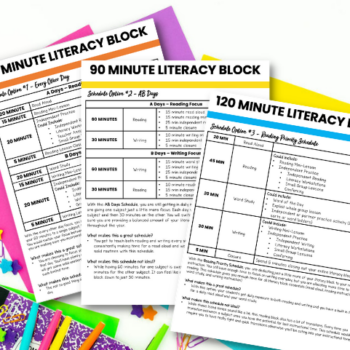
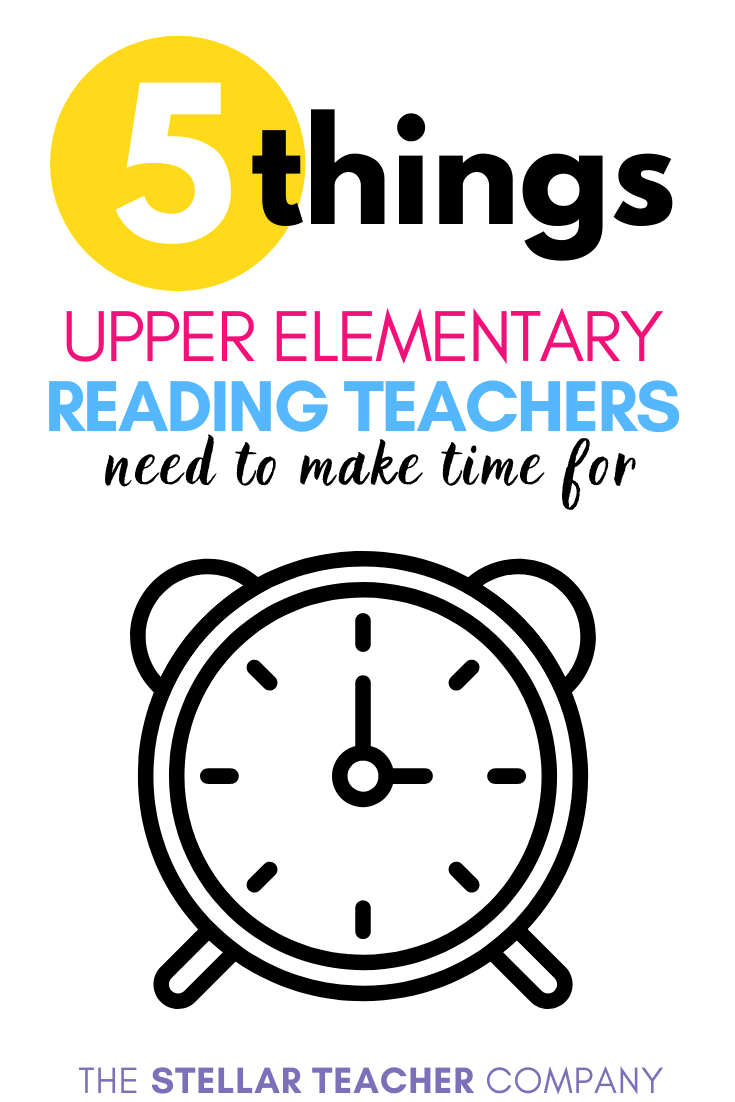



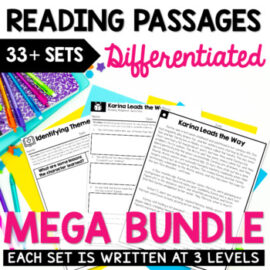
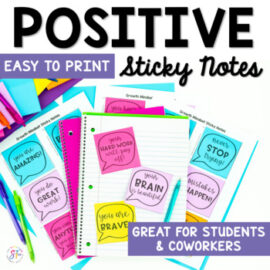
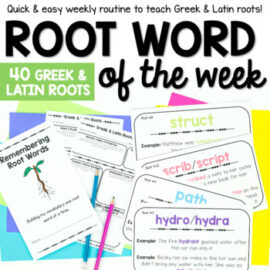
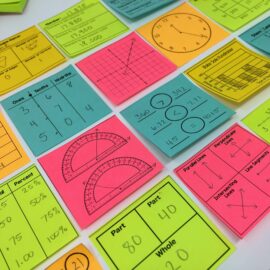
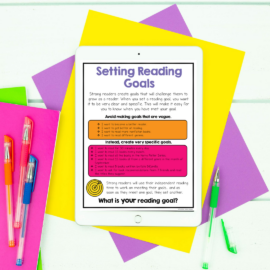
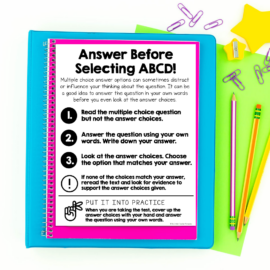
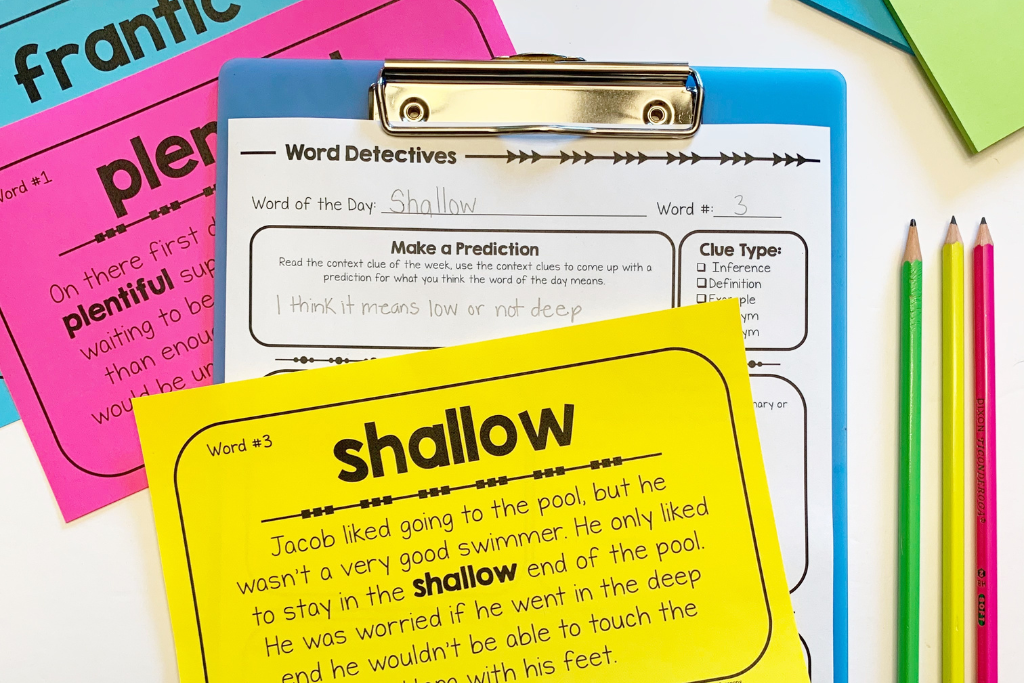
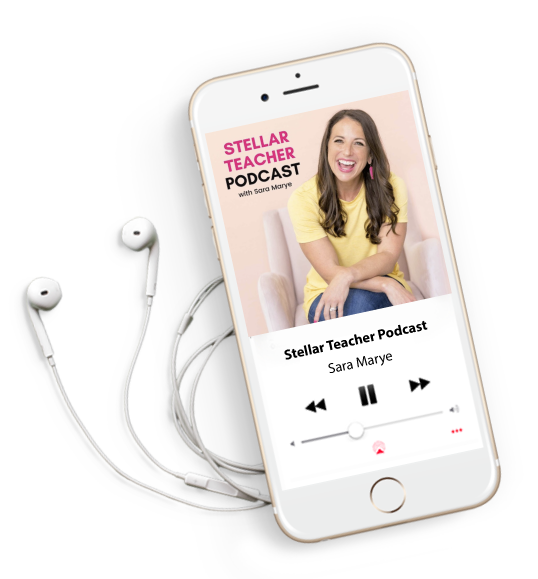

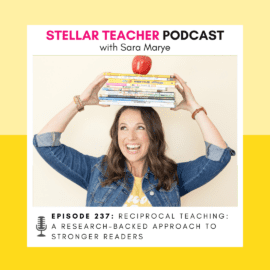



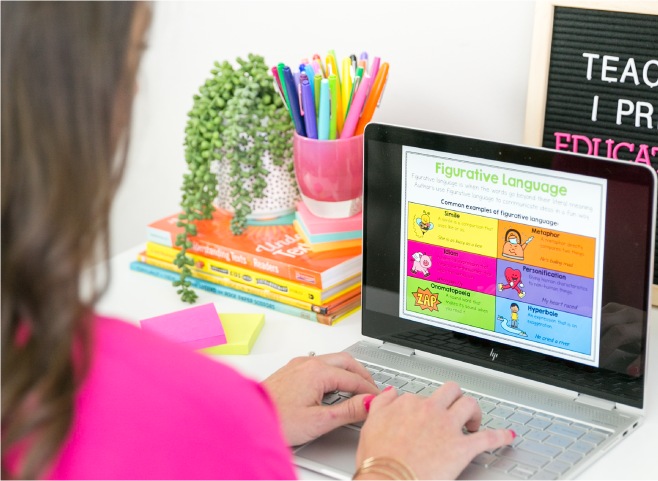
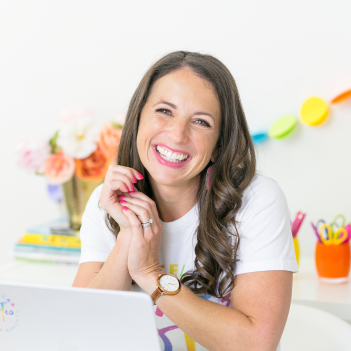
Leave a Comment
You must be logged in to post a comment.